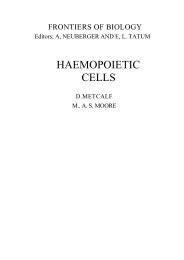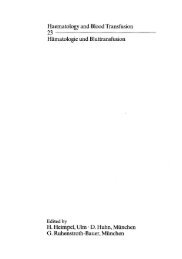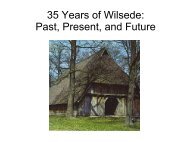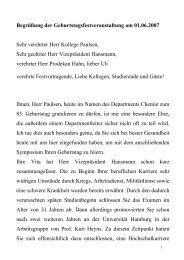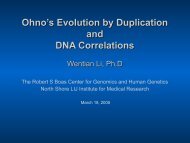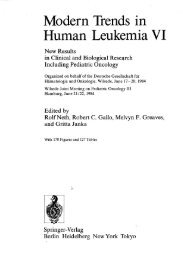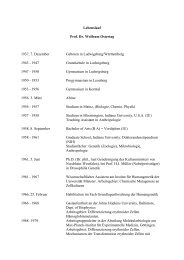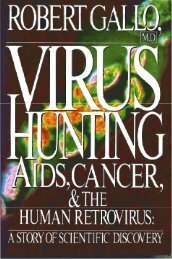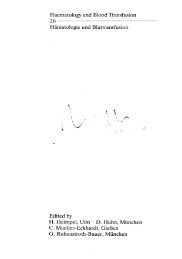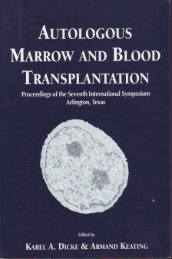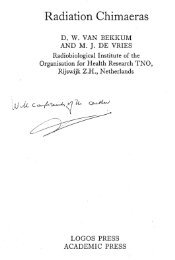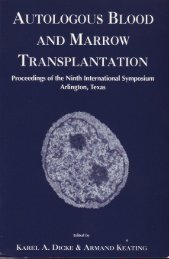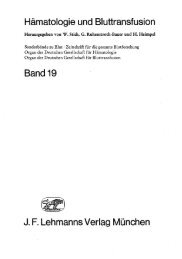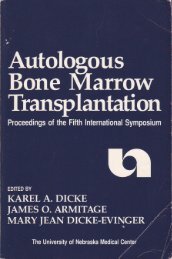VI Autologous Bone Marrow Transplantation.pdf - Blog Science ...
VI Autologous Bone Marrow Transplantation.pdf - Blog Science ...
VI Autologous Bone Marrow Transplantation.pdf - Blog Science ...
You also want an ePaper? Increase the reach of your titles
YUMPU automatically turns print PDFs into web optimized ePapers that Google loves.
THE RECOMBINANT HUMAN LIGAND FOR C-KIT ENHANCES THE IN<br />
<strong>VI</strong>VO BIOLOGICAL EFFECTS OF RECOMBINANT HUMAN GRANULO<br />
CYTE COLONY-STIMULATING FACTOR FOR STIMULATING<br />
LEUKOCYTOSIS AND CIRCULATION OF HEMATOPOIETIC<br />
COLONY-FORMING PROGENITOR CELLS IN PRIMATES.<br />
R.G. Andrews, F.R. Appelbaum, G.H. Knitter, W.I. Bensinger, I.D. Bernstein,<br />
I.K. McNiece.<br />
The Fred Hutchinson Cancer Research Center, Seattle, Washington, USA; the<br />
University of Washington Regional Primate Research Center, Seattle,<br />
Washington, USA; Amgen, Inc, Thousand Oaks, California, USA. Supported by<br />
Grants and Contracts NO1-AI-85003, NIHRROOI66, and CA39492 from the<br />
National Institutes of Health, and Amgen, Inc.<br />
The ligand for c-kit, called stem cell factor (SCF), mast cell growth factor<br />
(MGF), kit ligand (KL), and Steel factor or Steel locus factor (SIF) C -4<br />
), is a growth<br />
factor with pleiotropic effects that enhances the proliferation of hematopoietic<br />
colony-forming cells (CFC)in response to specific hematopoietic growth factors(<br />
57<br />
). By itself, SCF stimulates little proliferation of CFC but prolongs the survival<br />
of CFC in vitro. In mice, SCF administration corrects many of the hematopoietic<br />
defects in Sl/SId mice that have mutant SCF genes 0). SCF administered<br />
to normal mice produces a spectrum of biological effects within the hematopoietic<br />
system, including the expansion of cells that reconstitute hematopoiesis after<br />
transplantation into W/Wvmice ( 8<br />
).<br />
We have investigated the biological effects of the recombinant human ligand<br />
for c-kit (rhSCF) on in vivo hematopoiesis in baboons, with particular interest<br />
in the trafficking of hematopoietic progenitor cells. We showed previously<br />
that rhSCF is biologically active on baboon hematopoietic progenitor cells in culture,<br />
as it acts synergistically with G-CSF, GM-CSF, IL-3, Epo, and IL-6 to enhance<br />
the in vitro proliferation of individual CFC as well as increasing the number<br />
of CFC that proliferate in vitro in the presence of these factors (9). Monoclonal<br />
antibodies to the human c-kit molecule, that competitively block rhSCF<br />
binding, also bind to the subpopulation of baboon marrow cells that express<br />
CD34 which includes virtually all progenitor cells as well as transplantable hematopoietic<br />
cells. This suggests that baboons may provide a model for studying<br />
the in vivo biological effects of rhSCF on hematopoiesis.<br />
RhSCF administered to baboons by either continuous intravenous infusion<br />
or subcutaneous injection stimulates a dose dependent leukocytosis, with increases<br />
in white blood cells of multiple types in the circulation, including neutrophils,<br />
monocytes, eosinophils, basophils, and both T and B lymphocytes (9 10<br />
).<br />
RhSCF also stimulates a reticulocytosis and increases the number of circulating<br />
red blood cells and the hematocrit. Platelet counts initially decrease slightly, after<br />
which they return to pretreatment levels, and then increase slightly above<br />
pretreatment values after administration of rhSCF is stopped.<br />
SIXTH INTERNATIONAL SYMPOSIUM ON AUTOLOGOUS BONE MARROW TRANSPLANTATION 227



